iHeartDogs is reader-supported. Some of the links below may be paid affiliate links, where we receive a small commission on a product at no additional cost to you.
Chia seeds aren’t just for your smoothies; they can also be a fantastic supplement to your dog’s diet. Packed with essential nutrients like omega-3 fatty acids, fiber, and protein, chia seeds offer a range of health benefits for your four-legged friend. In this article, we will dive into the top chia seed supplements and treats designed specifically for dogs, exploring their benefits, nutritional profiles, and how they can enhance your pet’s overall well-being.
#1 – BetterBody Foods Organic Chia Seeds with Omega-3, Non-GMO, Gluten Free, Keto Diet Friendly, Vegan, Good Source of Fiber, 2 lbs, 32 Oz
The BetterBody Foods Organic Chia Seeds are a nutritious addition to any diet. They are packed with omega-3 and fiber, making them a great addition to protein shakes or juices. They are also versatile, as they are flavor-neutral and can be added to a variety of dishes without clashing with the original flavor. Whether you are following a specific dietary restriction or simply looking to add more nutrients to your meals, these chia seeds are a beneficial choice.
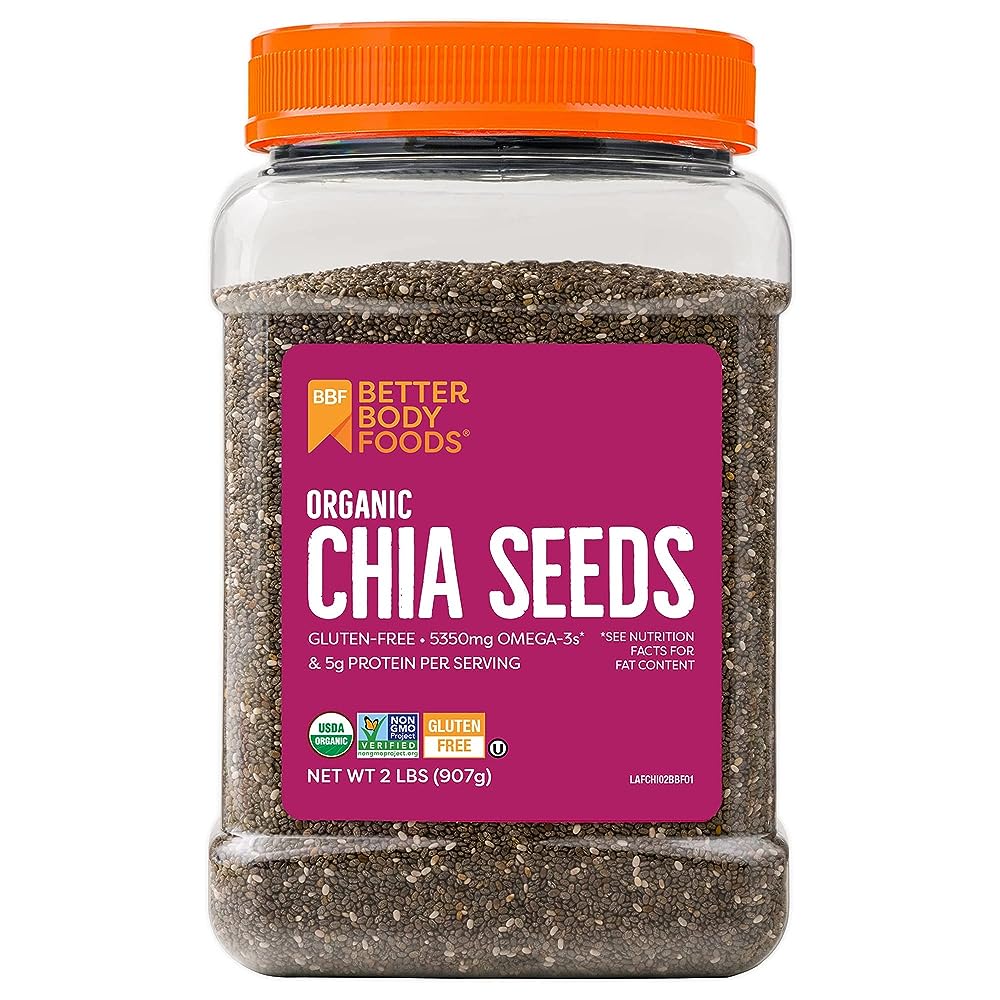
#2 – Nature’s Diet Pet Bone Broth Protein Powder with Collagen, Chia Seed, Flax Seed & Omega 3 (Skin & Coat, 6 oz (60 Servings))
Nature’s Diet Pet Bone Broth Protein Powder is a US-made product that aims to nourish pets and improve their digestion, bone and joint health, as well as their skin and coat health. This slow-simmered bone broth is made with high-quality, human-grade ingredients. It contains collagen, chia seed, flax seed, and omega-3, providing a well-rounded blend of nutrients for pets. With 60 servings in a 6 oz container, this product offers a convenient and tasty way to support pets’ overall wellness.
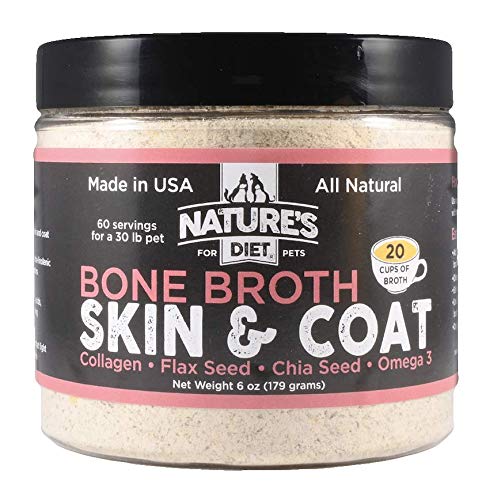
#3 – Amazon Brand – Wag Expedition Human Grade Organic Biscuits Dog Treats, Non-GMO, Gluten Free, Pumpkin & Chia Seed, 10oz
The Amazon Brand – Wag Expedition Human Grade Organic Biscuits Dog Treats are organic, gluten-free, and non-GMO dog biscuits made with pumpkin and chia seeds. These biscuits contain Omega-3 fatty acids to support the immune system and joint health, Vitamin B6 for nervous system and brain function, and fiber for digestive support. They can be fed as a treat, training aid, or reward for dogs and come with a satisfaction guarantee.
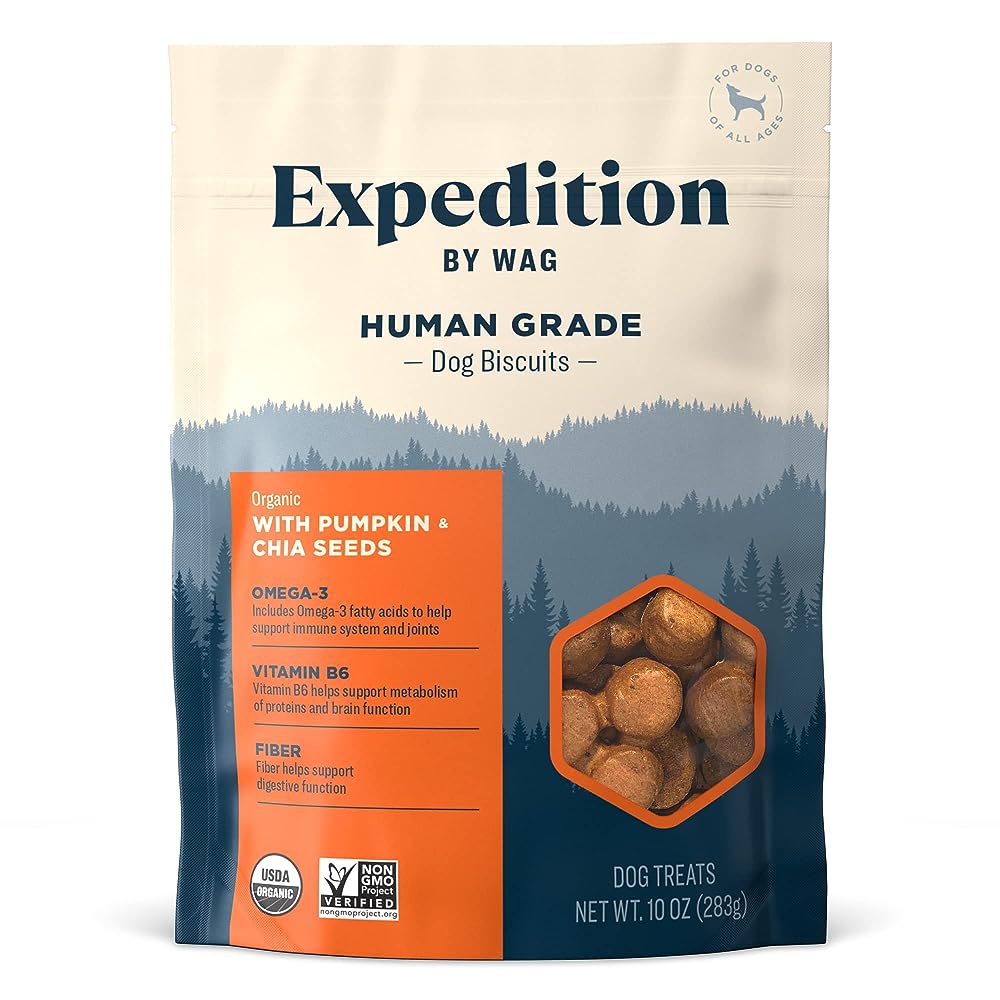
#4 – Judee’s Organic Chia Seeds 1 lb – Non-GMO and Vegan – Gluten-Free and Keto-Friendly – Add to Pudding, Smoothie, and Yogurt – Make Overnight Oats, Protein Snacks, and More
Judee’s Organic Chia Seeds are a versatile and nutritious addition to your pantry. They are non-GMO, vegan, gluten-free, and keto-friendly, making them suitable for a wide range of dietary preferences. These chia seeds can be added to various dishes such as puddings, smoothies, yogurt, acai bowls, and muffins, providing an extra crunch and texture. They are packaged in a gluten-free facility and come in a standup, resealable pouch to maintain their freshness. Since 2009, Judee’s has been committed to offering allergy-conscious and high-quality ingredients for your recipes.
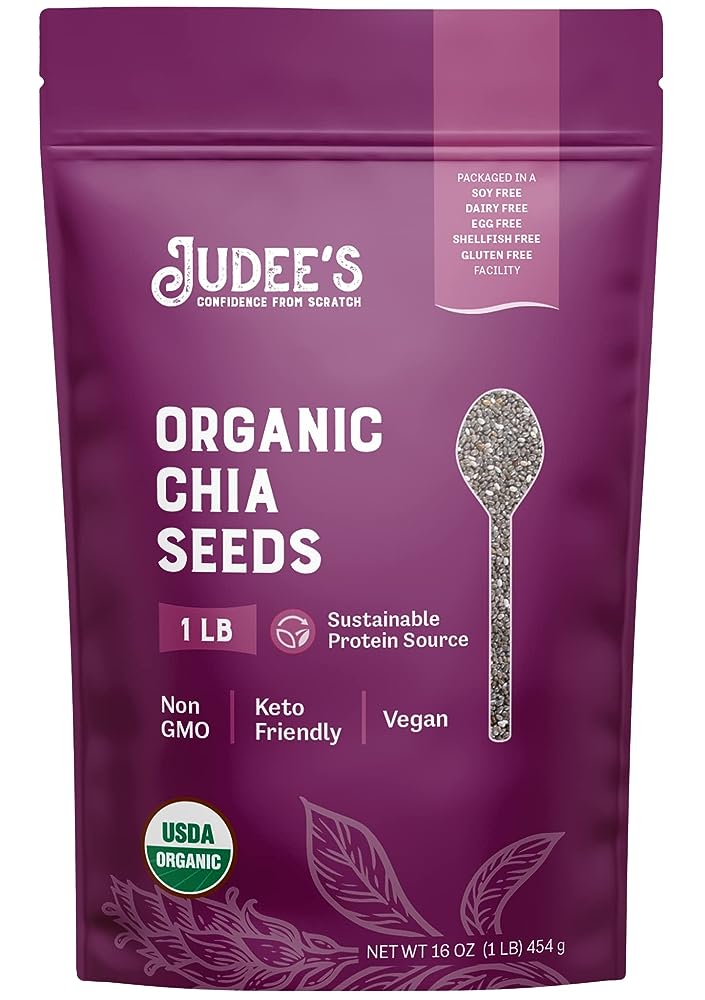
#5 – Navitas Organics Chia Seeds (8oz)
Navitas Organics Chia Seeds are a nutrient-rich food source that is high in protein, fiber, vitamins, minerals, and antioxidants. These seeds are particularly rich in magnesium, calcium, and iron, and provide 11% of the daily recommended value of fiber and 2g of protein per serving. In addition, they are a great source of omega-3 fatty acids, which are important for overall health. The chia seeds can be used in various recipes, such as chia pudding, salads, oatmeal, dips, smoothies, and baked goods. This product is USDA Organic, Kosher, Non-GMO, vegan, and gluten-free.
What Are The Benefits of Chia Seeds for Dogs?
Chia seeds can offer a variety of health benefits when incorporated into a dog’s diet. Here are some of the key advantages:
- Rich in Omega-3 Fatty Acids: Chia seeds are one of the best plant-based sources of omega-3 fatty acids, which are known for their anti-inflammatory properties. These can benefit your dog’s skin, coat, and overall cellular function.
- High in Fiber: The high fiber content in chia seeds can help regulate your dog’s digestive system, aiding in both constipation and diarrhea management. Fiber also contributes to weight management by making your dog feel fuller, which can reduce overeating.
- Packed with Protein: Chia seeds are a good source of protein, essential for muscle growth and repair. Protein is a key component of a balanced diet for dogs, especially those that are active or still growing.
- Rich in Antioxidants: The antioxidants in chia seeds help combat free radicals in the body, contributing to a stronger immune system and potentially reducing the risk of chronic diseases.
- Mineral-rich: Chia seeds contain essential minerals like calcium, phosphorus, and magnesium, which are crucial for bone health, nerve function, and many other physiological processes.
- Hydration: The water-absorbing properties of chia seeds can help keep your dog hydrated, particularly useful during hot weather or after exercise.
- Non-Allergenic: Chia seeds are generally well-tolerated and are less likely to cause allergic reactions compared to other seeds and nuts.
- Convenient and Versatile: They are easy to incorporate into your dog’s diet either as a supplement or as an ingredient in homemade dog treats.
- Energy Boost: The balanced nutritional profile of chia seeds can offer a slow-release energy boost, making them a good choice for active or working dogs.
- Heart Health: The combination of fiber, omega-3, and protein in chia seeds can contribute to a healthier cardiovascular system.
As always, consult your veterinarian before adding chia seeds or any new supplement to your dog’s diet, especially if your pet has existing health conditions or is on medication.
Frequently Asked Questions About Chia Seeds Treats or Supplements for Dogs
1. Are chia seeds safe for dogs to consume?
Yes, chia seeds are generally safe for dogs to eat and offer a range of health benefits such as improved digestion, enhanced skin and coat quality, and increased energy levels. However, always consult your veterinarian before introducing any new supplement or food into your dog’s diet, especially if they have pre-existing health conditions.
2. How much chia seed should I give my dog?
A general recommendation is to start with 1/4 teaspoon per 10 pounds of body weight. However, the amount can vary based on the dog’s health condition and dietary needs. Always consult your veterinarian for tailored advice on the appropriate dosage for your dog.
3. Can chia seeds help my dog’s coat become shinier?
Yes, the omega-3 fatty acids in chia seeds can contribute to a healthier, shinier coat. They can also alleviate dry, itchy skin, which is a common issue in many dogs.
4. Can chia seeds help with my dog’s digestive issues?
Chia seeds are high in fiber, which can help regulate your dog’s digestive system. They can be beneficial in treating both constipation and diarrhea, but you should consult your veterinarian if digestive issues persist.
5. What is the best way to feed chia seeds to my dog?
Chia seeds can be sprinkled over your dog’s regular food, soaked in water to form a gel-like consistency, or even used as an ingredient in homemade dog treats. They are a versatile addition to your dog’s diet.
6. Can chia seeds help with my dog’s joint pain?
The anti-inflammatory properties of omega-3 fatty acids in chia seeds can potentially provide some relief from joint pain, although they are not a substitute for proper veterinary care for conditions like arthritis.
7. Can I give chia seeds to my puppy?
While chia seeds are generally safe for dogs of all ages, it’s best to consult your veterinarian for age-specific recommendations, particularly for puppies who have different nutritional needs.
8. Are there any side effects of giving chia seeds to my dog?
While chia seeds are generally well-tolerated, some dogs may experience gastrointestinal issues like gas or diarrhea if they consume too much. Always start with a smaller amount and monitor your dog for any adverse effects.
9. Can chia seeds interact with my dog’s medications?
There is limited information on the interaction between chia seeds and medications. However, given their high fiber content and effects on digestion, it’s wise to consult your veterinarian if your dog is on medication, especially for diabetes or blood clotting disorders.
10. Where can I buy chia seed supplements or treats for dogs?
Chia seed supplements and treats for dogs can be found in pet stores, health food stores, and online marketplaces. Look for high-quality, organic options to ensure you’re getting the best product for your dog.
Conclusion: Best Chia Seed Supplements & Treats for Dogs
Incorporating chia seeds into your dog’s diet can be a simple yet effective way to support their health. From improving digestion and boosting energy to supporting a healthy coat and skin, the benefits are numerous. However, as with any dietary supplement, it’s essential to choose high-quality products and consult with your veterinarian to ensure that they are appropriate for your dog’s unique health needs. With the right chia seed supplement or treat, you can offer your canine companion a tasty and nutritious addition to their regular diet.
iHeartDogs is reader-supported. Some of the links below may be paid affiliate links, where we receive a small commission on a product at no additional cost to you.
- Best Joint Supplement for Dogs
- Best CBD Gummies for Dogs
- Goat's Milk for Dogs
- Skin & Coat Supplements for Dogs
- Weight Gain Supplements for Dogs
- Muscle Building Supplements for Dogs
- Heart Supplements for Dogs
- Multivitamins for Dogs
- Pill Pockets for Dogs
- Digestive Enzymes for Dogs
- Turmeric for Dogs
- Liver Supplements for Dogs
- Tear Stain Supplement for Dogs
- Breath Fresheners for Dogs
- Kidney, Urinary, & Bladder Supplements for Dogs
- Stool Eating Deterrent for Dogs
- Eye Supplements for Dogs
- Melatonin for Dogs
- Apple Cider Vinegar for Dogs
- Green Lipped Mussels for Dogs
- L Theanine for Dogs
- Chondroitin Supplements for Dogs
- MSM for Dogs
- Valerian Root for Dogs
- Chamomile for Dogs
- Boswellia for Dogs
- L Tryptophan for Dogs
- Yucca for Dogs
- Licorice Root for Dogs
- Bromelain for Dogs
- Papain for Dogs
- Devil's Claw for Dogs
- Quercetin for Dogs
- Hemp gummy for dogs
- Best Hemp Dog Treats
- Best Hemp Oil for Dogs
- Best Calming Treats, Chews, & Supplements for Dogs
- Best Bone Broth for Dogs
- Best Fish Oil for Dogs
- Best Probiotics for Dogs
- Best Hip Dysplasia Supplements for Dogs
- Best Colostrum for Dogs
- Best Quercetin for Dogs
- Best Greens for Dogs Supplements
- Best Vitamin C Supplements for Dogs
- Best Probiotic for Dog with Allergies
- Best Taurine Supplements for Dogs
- Best Dog Food Toppers
- Best Anal Gland Supplement for Dogs
- Best Dog Probiotic Powder
- Best CoQ10 Supplement for Dogs
- Best Liquid Glucosamine for Dogs
- Best Wrinkle Creams, Balms, and Wipes for Dogs
- Best Puppy Calming Treats
- Best Colloidal Silver for Dogs
- Best Adaptogen Supplements for Dogs
- Best Cognitive Supplements for Dogs
- Best Bee Pollen for Dogs
- Best Vitamin A Supplements for Dogs
- Best Vitamin E Supplements for
- Best Liquid Glucosamine Supplements for Dogs
- Best SAM-e Supplements for Dogs
- Best Hyaluronic Acid Supplements for Dogs
- Best Apple Cider Vinegar Supplements for Dogs
- Best Diarrhea Medicine for Dogs
- Best Milk Thistle for Dogs
- Best Turkey Tail Mushroom Supplements for Dogs
- Best Astaxanthin Supplements for Dogs
- Best Lutein Supplements for Dogs
- Best Electrolyte Supplements for Dogs
- Best Coconut Oil for Dogs
- Best Prenatal Vitamins for Dogs
- Best Puppy Milk Replacements
- Best Iron Supplements for Dogs
- Best Dewormer Products for Dogs
- Best Mange Medications for Dogs
- Best Cough Relief Products for Dogs
- Best Sinus Relief Products for Dogs
- Best Collapsed Trachea Supplements for Dogs
- Best Fireworks Anxiety Relief Products for Dogs
- Best Thunderstorm Anxiety Relief Products for Dogs
- Best Travel Anxiety Relief Product for Dogs
- Best Supplements for a Dog with a Torn ACL
- Best Supplements for a Dog with Patellar Luxation
- Best Supplements for a Dog with Intervertebral Disc Disease
- Best Zinc Supplements for Dogs
- Best Biotin Supplements for Dogs
- Best Tart Cherry Supplements for Dogs
- Best Resveratrol Supplements for Dogs
- Best Ginkgo Biloba Supplements for Dogs
- Best Ashwagandha Supplements for Dogs
- Best Supplements for Dogs with Cushing's Disease
- Best Adrenal Supplements for Dogs
- Best NAD+ Supplements for Dogs
- Best NMN Supplements for Dogs
- Best Supplements for Dogs with Dementia
- Best Supplements for Dogs with CCD(Canine Cognitive Dysfunction)
- Best Fiber Supplements for Dogs
- Best Spirulina for Dogs
- Best Hairball Remedies for Dogs
- Best Eye Drops for Dogs with Allergies
- Best Magnesium Supplements for Dogs
- Best Brushes for Double-Coated Dogs
- Best Dandelion Root Supplements for Dogs
- Best Probiotic for Dogs with Yeast Infections
- Best Flaxseed Oil for Dogs
- Best Chamomile Supplements for Dogs
- Best Lavender Supplements. Treats & Sprays for Dogs
- Best Collagen Supplements for Dogs
- Best Kelp Supplements for Dogs
- Best Activated Charcoal for Dogs
- Best Slippery Elm Supplements for Dogs
- Best Supplements for Dogs with Seizures & Epilepsy
- Best Antioxidant Supplements for Dogs
- Best Ubiquinol Supplements for Dogs
- Best Hormone & Glandular Supplements for Dogs
- Best Thyroid Supplements for Dogs
- Best Iodine Supplements for Dogs
- Best Dog Shedding Supplements for Dogs
- Best Detox Supplements for Dogs
- Best Postbiotics for Dogs
- Best Aspirin Products for Dogs
- Best Dog Anti-Nausea Products
- Best Dog Mouthwashes
- Best Camelina Oils for Dogs
- Best Hemp Seed Oils for Dogs
- Best Natural Anti-Inflammatories for Dogs
- Best Cancer Supplements for Dogs
- Best Sardine & Anchovy Oils for Dogs
- Best Fatty Acid Supplements for Dogs
- Best Chia Seed Supplements & Treats for Dogs
- Best Olive Oils for Dogs
- Best Amino Acid Supplements for Dogs
- Best Moringa Supplements for Dogs
- Best Echinacea Supplements for Dogs
- Best Cranberry Supplements for Dogs
- Best D-Mannose Supplements for Dogs
- Best Nettle Leaf Supplements for Dogs
- Best Marshmallow Root Supplements for Dogs
- Best Astragalus Supplements for Dogs
- Best Pumpkin Seed Supplement for Dogs
- Best Supplements for a Dog Wetting The Bed
- Best Blueberry Supplement for Dogs
- Best Bromelain Supplements for Dogs
- Best Yucca Supplements for Dogs
- Best Ginger Supplements for Dogs
- Best Rosehip Supplements for Dogs
- Best Allergy Medicines for Dogs
- Best Reishi Mushroom Supplement for Dogs
- Best Maitake Mushroom Supplement for Dogs
- Best Chaga Mushroom Supplement for Dogs
- Best Shiitake Mushroom Supplement for Dogs
- Best Cordyceps Mushroom Supplement for Dogs
- Best Lion's Maine Supplement for Dogs
- Have question? - Ask in our Dog Health Forum
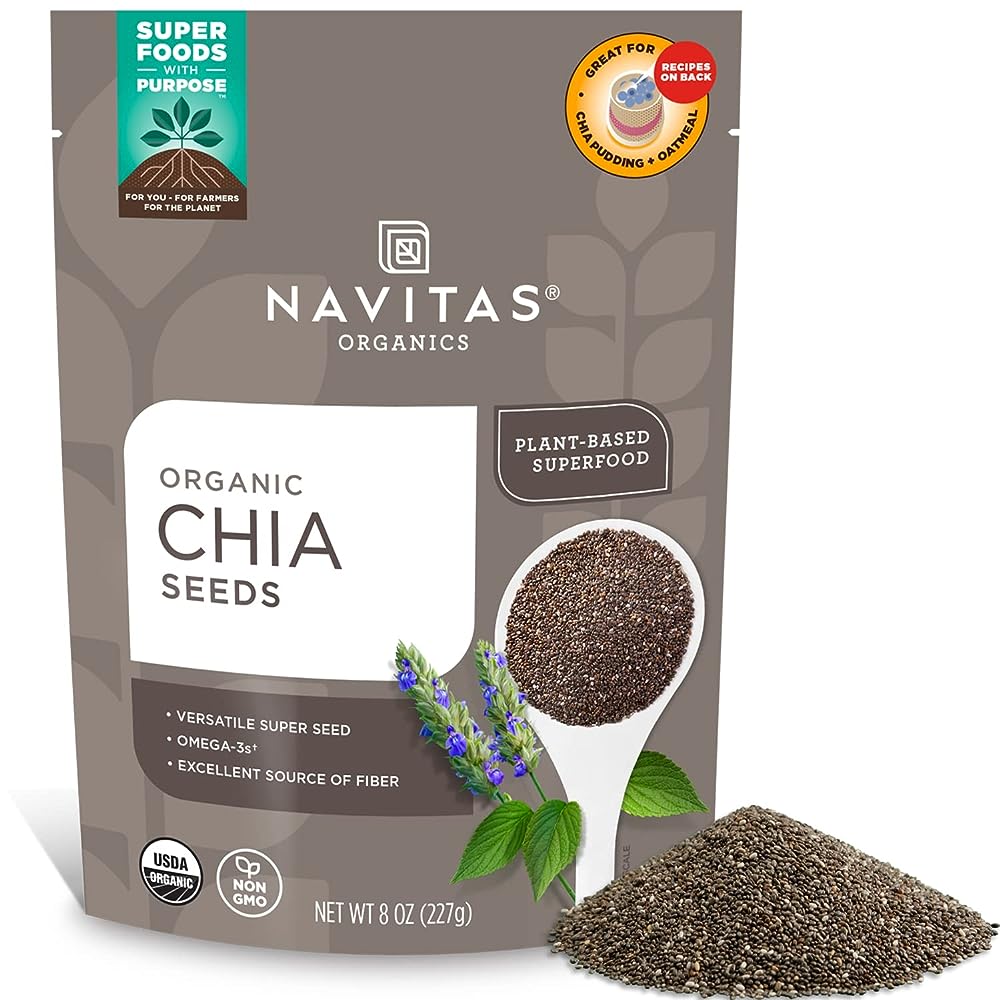
 Toledo, United States.
Toledo, United States.